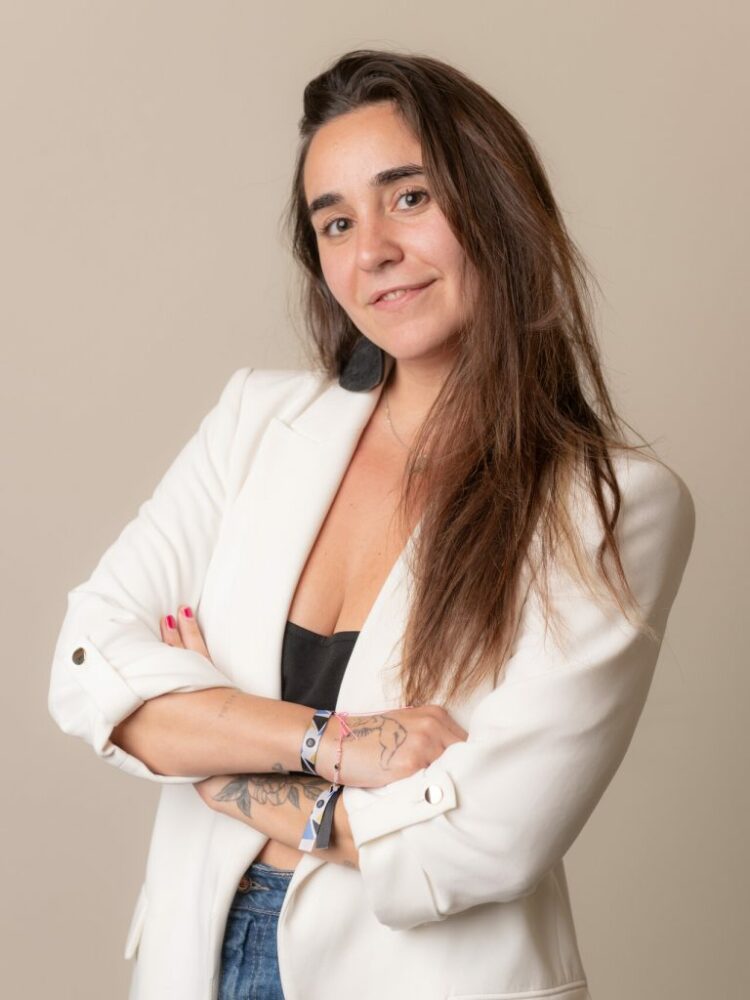
Despite Taylor Swift and Beyonce proving the selling power of women artists, equal representation for women in the music industry remains elusive.
A 2022 study from the USC Annenberg Inclusion Initiative found that women made up only 14.4% of all credited songwriters on Billboard Top 100 songs between 2012 and 2021 – and just 3.9% of producers. “In particular, women of color are virtually shut out of producing the most popular songs each year,” researchers added.
Women performers on pop hits don’t fare much better – on average, for every Swift or Beyonce hit single, there are three or four chart-toppers made by men. “We know there are talented women from all backgrounds who are not getting access, opportunity or credit for their work,” the study concludes.
These are the trends that music industry veteran Bel Aztiria is looking to buck.
She’s the leader of global music programs and social and equity initiatives at streaming giant Spotify. And she works toward improving representation for marginalized artists largely through two programs she created there: EQUAL, which focuses on women and gender-nonconforming performers; and GLOW, for creators who are members of the LGBTQ community. “We know that until equity is reached in music, we need to create spaces to give them more support, more visibility,” Aztiria says.
EQUAL, launched in 2020, now hosts over 40 featured playlists, featuring artists from Argentina, Japan, Canada, India, the U.S. and more, which have been promoted to the over 180 markets Spotify has worldwide. GLOW, created earlier this year, has five boosted playlists so far – including one international list – which is available in about 50 markets.
EQUAL also hosts in-person performances – including the EQUAL Festival in Buenos Aires scheduled for this month. GLOW, meanwhile, has sponsored numerous songwriting sessions for its featured artists.
And both programs have effectively elevated marginalized artists, Aztiria says. More than 5,600 women have been featured on EQUAL playlists, which have been played more than 800 million times. The GLOW playlists, meanwhile, have been streamed over 111 million times.
Forging Connections
More than metrics, the Argentina-born Aztiria has always been inspired by the connections – both personal and emotional – that music can create. Raised just outside of Buenos Aires, she and her family left 20 years ago when the country fell into a deep economic depression. She landed in Switzerland, but the move came with a significant cultural loss.
“I lost contact with the music that I loved,” she recalls. Music “is the way I connected with people – I’m the person who would create compilations for other people as a way of showing love.”
When Spotify first launched in 2006, Aztiria was an instant fan. She found the Argentinian artists she’d loved once more – and it felt like finding “pieces of who I was.”
That passion stayed with her as she earned a bachelor’s degree in psychology from the University of Lausanne in Switzerland in 2014. She went on to earn a master’s in music business from Westminster University in London in 2017.
But getting into the industry behind the art she adored wasn’t always pleasant, or easy. She worked in all facets of the music industry while continuing her education – from writing for pop music publications and providing artist management services, to working backstage at live events and in recording studios. “I have my own experience of what it means to be a woman in the music industry – how much harder you have to try when you don’t have a support network.”
It was especially daunting to make a name for herself as an immigrant woman, she adds. “You might not have the contacts that you get by going to the same schools or parties, or having friends in common.” She prioritized networking to build her own ecosystem, but “that didn’t come overnight.”
This particular problem – a lack of professional networking and guidance for marginalized folks – extends beyond the music world. Research from global consulting firm DDI shows that 63% of working women overall have never had a professional mentor. Other studies show a similar dearth in mentors for people of color trying to establish themselves.
Once Aztiria finished her music business degree, she secured a job at Spotify, and has been working toward diversifying its offerings and stable of artists ever since. She’s even discovered some favorites of her own as she worked toward elevating the lesser-knowns. Performers like neo-soul Zambian activist Moonga K.; Mexican singer-songwriter Silvana Estrada; and a beloved Argentinian performer of hers, Soledad.
They all offer something different from one another, Aztiria says. “Being a woman, or being queer, is different in each country,” she says. By customizing the playlists and live performances to fit the countries they represent, listeners are more likely to tune in – and creators are more likely to be seen and heard.
And this is the primary objective. After all, Aztiria says, “we don’t support these artists because they’re queer, or because they’re women – they’re amazing artists.”



